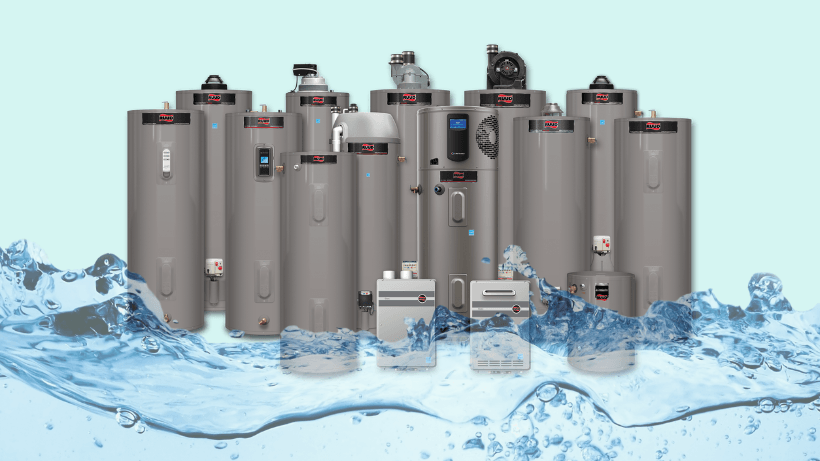In the realm of home appliances, the water heater stands as a stalwart contributor to our daily comfort. As technology advances, so do the options available, making the decision-making process more nuanced. This comprehensive guide aims to unravel the intricacies of various water heater types, shedding light on their features, advantages, and potential drawbacks.
Traditional Tank Water Heaters:
Traditional tank water heaters have been a staple in households for decades. They operate by storing and heating a fixed amount of water within a tank.
While their upfront cost is relatively low, these heaters come with limitations such as a finite hot water supply and energy inefficiency due to standby heat loss.
Tankless Water Heaters:
In contrast, tankless water heaters provide hot water on demand without the need for a storage tank. They heat water as it flows through the unit, offering energy efficiency and an endless supply of hot water.
However, their higher upfront cost and the potential complexity of installation may be considerations for homeowners.
Heat Pump Water Heaters:
Harnessing the ambient heat from the air or ground, heat pump water heaters are energy-efficient alternatives. They work well in moderate climates but may struggle in extreme temperatures.
The initial cost is higher, but the long-term energy savings can outweigh this drawback.
Solar Water Heaters:
For the environmentally conscious, solar water heaters utilize the power of the sun to heat water through solar collectors. While they contribute to renewable energy usage and are eco-friendly, the initial investment and dependence on weather conditions might deter some homeowners.
Condensing Water Heaters:
Condensing water heaters capture and use escaping heat from flue gases, maximizing efficiency and reducing energy consumption. The complexity of installation and the higher initial cost may be factors to consider.
Point-of-Use Water Heaters:
These compact units are installed near the point of water usage, minimizing heat loss in plumbing and providing instant hot water. However, their limited capacity may make them unsuitable for supplying hot water to an entire home.
Hybrid Water Heaters:
Combining tank and tankless technologies, hybrid water heaters offer energy efficiency and a continuous hot water supply.
The initial cost and potential complexity in installation are considerations, but the long-term benefits may outweigh these drawbacks.
Indirect Water Heaters:
Indirect water heaters use a separate boiler to heat water indirectly, ensuring high efficiency and compatibility with various heat sources.
The requirement of a boiler and a higher initial cost may limit their widespread adoption.
FAQs:
Q1: What factors should I consider when choosing a water heater?
A1: Consider the energy efficiency, fuel type, cost, and your specific hot water needs. Also, think about the available space for installation.
Q2: Are tankless water heaters suitable for large households?
A2: Yes, tankless water heaters are an excellent choice for large households as they provide a continuous and ample supply of hot water.
Q3: How long does a water heater typically last?
A3: The lifespan of a water heater varies, but on average, it can last between 10 to 15 years with proper maintenance.
Q4: Can I install a solar water heater in any climate?
A4: While possible, solar water heaters are most effective in regions with abundant sunlight, and their efficiency may vary in cloudy or colder climates.
Q5: Are hybrid water heaters noisy?
A5: No, hybrid water heaters operate quietly compared to some traditional models, making them suitable for various living environments.
Q6: What maintenance do tankless water heaters require?
A6: Periodic flushing is recommended to remove mineral buildup, ensuring the optimal performance and longevity of tankless water heaters.
Q7: Can I switch from a traditional tank water heater to a tankless system?
A7: Yes, it is possible to switch, but it may require modifications to your plumbing and possibly electrical systems. Professional installation is advised.
Conclusion:
In the pursuit of the ideal water heater, an informed decision is paramount. Each type presents a unique set of advantages and disadvantages, and understanding their intricacies is essential for selecting the system that aligns with your priorities. By considering factors such as energy efficiency, upfront costs, and long-term benefits, homeowners can confidently choose a water heater that not only meets their immediate needs but also ensures sustained comfort and efficiency for years to come.

A group of home improvement enthusiasts and bathroom design experts, combines in-depth knowledge and a shared passion to deliver engaging, informative content that guides readers through the world of bathroom innovation and style.

Leave a Reply